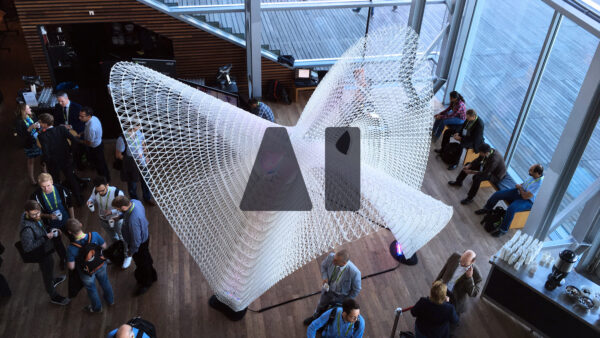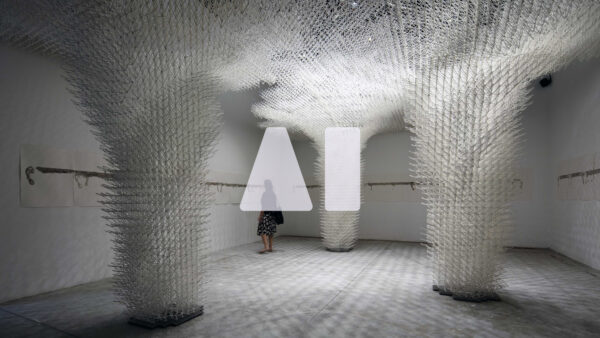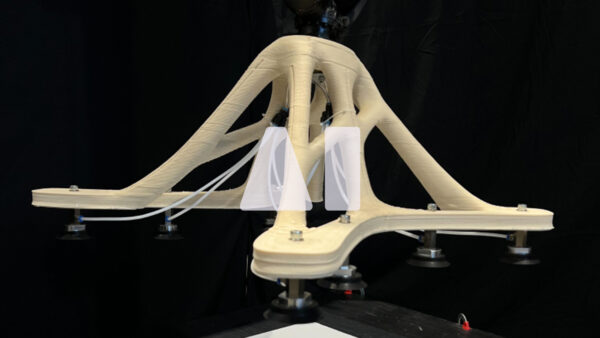Designed for the third edition of Rossana Orlandi Guiltless Plastic campaign, TWINE is an urban public furniture piece pushing the boundaries of additive manufacturing with conformal 3D printing and bespoke design. A collaboration between designers HagenHinderdael, outstanding sustainable material supplier Reflow, and award-winning Artificial Intelligence and robotic 3D print developers Aibuild, TWINE takes waste from medicinal settings and transforms it into functional and playful modular furniture elements.
The material itself has been extruded by Reflow, a sustainable material development team who work in collaboration with leading recyclers in the EU to extensively test and match discarded material streams to specific design applications from prototyping to architecture, automotive or product design. In the process, Reflow melts and pulls shredded rPETG plastic granulates through a number of specific heating zones until the medical tray waste can be winded into filament for high performance, large-format 3D printing. The filament is heat resistant, weatherproof, and durable for the usage of indoor and outdoor furniture.
Working with technology pioneers Aibuild, this filament is then transformed by the Aibuild robotic systems using Aibuild software to create conformal toolpaths to print atop a bespoke mould. As the filament feeds through the robotic system, TWINE is created. The system itself can carry up to four varying filament streams, enabling a gradient of transparencies within the elements and unlocking a rich spectrum of colour from the recycled material.
In its design, the sculptural form of Twine has been developed to encourage play. Available as a seat or elongated bench, its edge has been designed to allow endless combinations with an overall wave-like form that creates varying ways to sit amongst or within the piece. This playful interaction is further enhanced by the natural transparency within the materiality itself, allowing light to protrude in dynamic ways. We invite users to assemble the elements as individual components or flip and combine them into longer configurations providing new discoveries at every turn.
Driven by the concept of merging sustainable technologies with play and interaction, TWINE is the result of a cognitive and extensive partnership where we seek new sources of postconsumer or post-industrial material types discarded by other industries which can fulfil meaningful long lasting or closed loop applications.


















